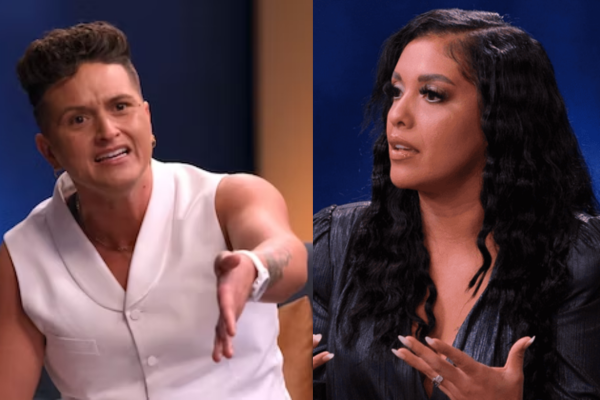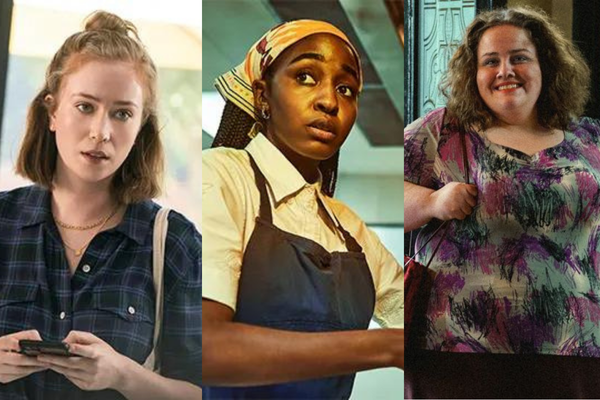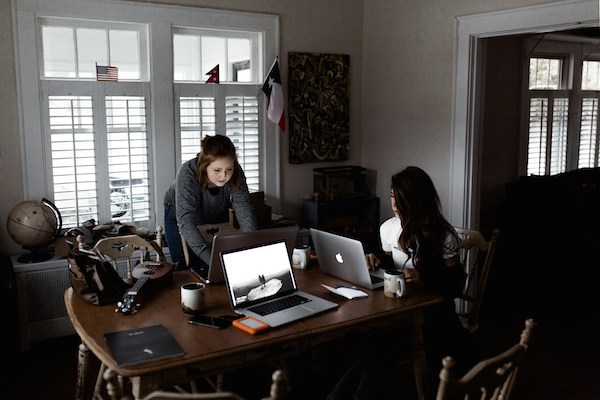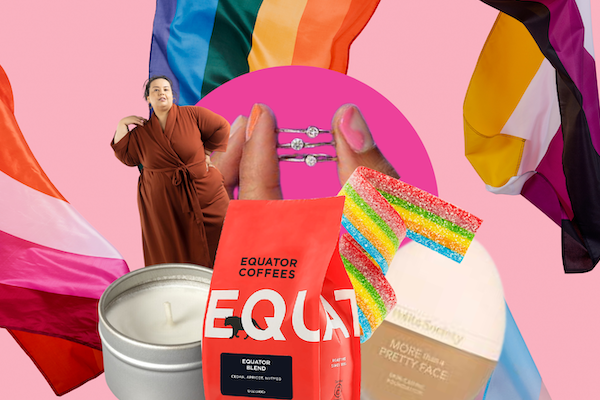
7 Banned Books by LGBTQ+ Authors of Color
October 2, 2023
The Dinah Taught Me It’s Not About Fitting In
October 10, 2023Over the summer, the Netflix show “The Ultimatum: Queer Love” gained national attention for exploring various LGBTQIA2S+ relationships. For those unfamiliar with “The Ultimatum” shows, five couples participate in the show and the “Queer Love” season had a cast exclusively of women and nonbinary people. Each finds themselves at a crossroads in their relationship—One partner is ready to get married, and the other is not.
While the show deserves credit for highlighting the complexity of our queer relationships, it failed in some critical ways. Namely, it overlooked the existence of unhealthy relationships and intimate partner violence (IPV) within the queer community. It missed an opportunity to educate the larger LGBTQIA2S+ and the heterosexual community on the prevalence of IPV in our relationships, perpetuating the myth that these issues don’t exist among us.
The show’s omission of these critical issues was a missed opportunity to shed light on the reality that abuse can occur in any relationship, regardless of gender identity or sexual orientation.
The statistics are startling. According to nonprofit organization The Network/La Red, 25 to 33 percent of LGBQIA2S+ individuals experience intimate partner violence in their relationships, and 54 percent of transgender folks experience abuse from their partners.
Another significant missed opportunity was addressing the bias against the experiences of androgynous, nonbinary, and masculine-of-center women facing IPV. “The Ultimatum: Queer Love” inadvertently contributed to the erasure of their pain and struggle.
It’s crucial to remember that IPV doesn’t discriminate based on gender or presentation. It is a painful reality that androgynous, nonbinary, and masculine-of-center women can also experience IPV at the hands of their feminine-of-center partners. Sadly, these experiences often go unnoticed and unaddressed by first responders, domestic violence providers, society, social media, and even our communities.
For too long, bias, homophobia, and misogyny have perpetuated a harmful stereotype that has silenced and harmed countless androgynous, nonbinary, and masculine-of-center women who are survivors of IPV. This societal expectation makes it incredibly difficult for androgynous, nonbinary, and masculine-of-center women to come forward and seek help when they are experiencing abuse.
Furthermore, homeless shelters are often unsafe or unwelcoming for androgynous, nonbinary, masculine-of-center women. Forty-three percent of survivors were turned away from shelters, and upon entering shelters, many experienced violence or discrimination from staff and other clients.
As with “The Ultimatum: Queer Love,” the community support, too, tends to focus on the feminine-of-center women as the victims of IPV. Androgynous, nonbinary, and masculine-of-center women survivors can feel isolated and judged when they attempt to share their experiences. This lack of acknowledgment and support further perpetuates the cycle of silence and shame.
To combat this invisibility, we need to foster a more inclusive and empathetic society that recognizes and supports all survivors of IPV, regardless of their gender presentation.
This is also where “The Ultimatum: Queer Love” failed—they did not recognize the domestic violence that was occurring right before our eyes because it occurred in a queer relationship. Throughout the show, Netflix provided no content warnings or domestic violence hotlines for viewers to call if they felt triggered or realized they were in a similar situation and needed help. Even the episodes with the most explicit abusive content, including the reunion, were left with no warnings or resources.
The media, including television shows like “The Ultimatum: Queer Love,” must better portray the diversity of relationships and the challenges people face. By acknowledging the existence of domestic violence and intimate partner violence in all types of relationships, we can break down the harmful stereotypes and stigmas that prevent androgynous, nonbinary, and masculine-of-center women survivors from seeking help.
This begins with education and awareness campaigns that emphasize that anyone can be a victim and anyone can be a perpetrator. It requires creating safe spaces where survivors feel comfortable coming forward, seeking help, and receiving the support they need.
LGBTQIA2S+ survivors of domestic violence or intimate partner violence face unique challenges when fleeing an abusive relationship, and there are very few culturally competent domestic violence service providers to support queer folks, even in Washington DC, where some of the most progressive and inclusive laws exist to support LGBTQIA2S+ individuals.
According to data from The National Intimate Partner and Sexual Violence Survey, 61 percent of bisexual women, 44 percent of lesbians, and 25 percent of LGBTQIA2S+ youth experience rape, physical violence, and stalking by an intimate partner. These statistics might be underreported because of the fear of being outed or not being believed.
It’s time to recognize that IPV knows no boundaries of gender presentation or sexual orientation. By addressing this issue head-on and providing support to all survivors, we can truly create a more inclusive and compassionate society that prioritizes the safety and well-being of everyone. It’s time to break the silence and stand together against intimate partner violence in all its forms.
Netflix gets another chance with Season Two.
If you or someone you know is experiencing domestic violence, you are not alone; help is available. You can call the National Domestic Violence Hotline at any time at 1-800-799-SAFE (7233) or text “START” to 88788. You can also call The Network/La Red‘s 24-hour hotline that provides emotional support for LGBTQIA2S+ folks at 617-742-4911 or toll-free at 800-832-1901.
The Wanda Alston Counseling Center provides short-term emergency shelter, case management, and crisis support to LGBTQIA2S+ individuals experiencing intimate partner violence and sexual assault. Contact us at 202-964-2546 or wacc@wandaalstonfoundation.org or visit our website





